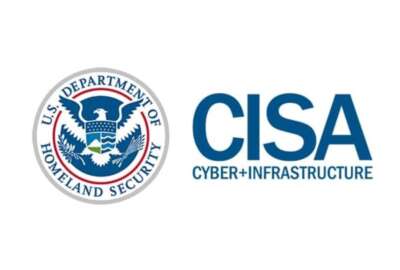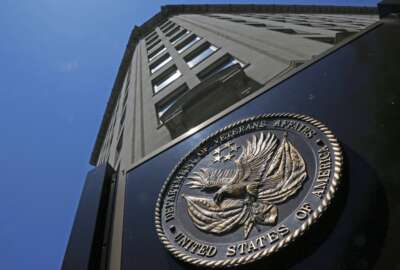Hubbard Radio Washington DC, LLC. All rights reserved. This website is not intended for users located within the European Economic Area.
On Air: Federal News Network
Trending:
Does the federal government really need DHS?
Doing away with DHS would result in a massive government reorganization that would most likely be even messier than the one that created DHS, says former DHS Ch...
Commentary by Jeff Neal
Founder of ChiefHRO.com
& Senior Vice President, ICF International
This column was originally published on Jeff Neal’s blog, ChiefHRO.com and was republished here with permission from the author.
The Department of Homeland Security has been in the news recently regarding leadership vacancies.
DHS being in the news is not news — the Department is in the news virtually every day. When I was chief human capital officer for DHS I got sick of reading the stories about DHS — everyone wants to write about the negatives and almost no one writes about the positives.
Does DHS have morale issues? Yes. Does it have turnover issues? Yes, but not as bad as it might appear. Does DHS have issues with organization and command and control? Yes. Those and other issues lead some people to conclude DHS never should have been created and should be done away with. If that happened, the work DHS does would have to be done somewhere else.
Regardless of how they are delivered, we need the services of the Federal Emergency Management Agency, Customs and Border Protection, Immigration and Customs Enforcement, and the aviation security services of TSA. That means doing away with DHS would result in a massive government reorganization that would most likely be even messier than the one that created DHS.

I am never surprised when people say the solution to a problem is to reorganize. I am also never surprised when the reorganization fails to solve the problem. Reorganization can be a solution when organizational constructs are the source of a problem — otherwise they solve nothing. Many of the issues DHS faces are the result of the reorganization that created DHS. When the Homeland Security Act was passed, it was in response to post-September 11 fear.
I will leave it to others to judge whether that was the best solution or not. What I do know is that the stand-up of DHS in 2003 was done in haste and without adequate planning. In a perfect world, Secretary Tom Ridge would have been appointed, given a transition planning team and adequate resources, and would have had a year or more to plan an orderly stand-up. He did not have that luxury, so the department was assembled on the fly.
Given the circumstances under which they had to work, the people who stood up DHS did a remarkable job. They built a functioning department quickly and without any major disasters.
In the years since, DHS has successfully executed a massive buildup to double the size of the Border Patrol, consolidated countless systems, dealt with H1N1 and terrorist threats, responded to the BP oil spill, made tremendous strides in improving management integration within the department, arrested more than 12,000 child sex tourists, predators and child pornographers, deported record numbers of undocumented immigrants (increasing the number from 88,000 in 2008 to almost 200,000 in 2010), responded to dozens of natural disasters, and innumerable other accomplishments that few people hear about.
Here are a few more of those accomplishments (sourced from the 2015 DHS Budget in Brief):
- The Department of Homeland Security has dedicated historic levels of personnel, technology, and infrastructure to border security to reduce the flow of illegal immigrants and illicit contraband while fostering legal trade and travel across both our North and Southwest borders, and at our air and sea ports of entry. Every day, DHS personnel pre-screen 6 million air travelers, screen 1.8 million passengers and their baggage for explosives and prohibited items, patrol 4.5 million square miles of U.S. waterways, and screen 100 percent of cargo and vehicles entering the country from Mexico and Canada.
- Annually, DHS personnel naturalize three quarters of one million new citizens, assist over 500,000 employers in determining the eligibility of their employees to work in the U.S., process 168 million visa and border crossing card holders, and process more than 300 million travelers entering the U.S. by land, sea, and air. DHS secures $2.4 trillion of trade, and enforces U.S. laws that protect health and safety, welcomes legitimate travelers, and facilitates the flow of goods and services essential to our nation’s economy.
- In fiscal year 2013, Customs and Border Protection (CBP) processed $2.38 trillion in trade and nearly 25 million cargo containers through our nation’s POEs.
- In FY 2013, CBP officers conducted more than 24,000 seizures due to intellectual property rights violations and prevented $1.7 billion in counterfeit goods from entering the U.S. economy, representing a 38 percent increase in value over FY 2012.
- CBPOs and Border Patrol agents seized nearly 4.4 million pounds of narcotics in FY 2013, a 2 percent increase from FY 2012, and more than $106 million in unreported currency.
- In FY 2013, Immigration and Customs Enforcement (ICE) made 40,218 criminal arrests while seizing $1.3 billion in U.S. currency and other monetary instruments, 1.6 million pounds of narcotics and other dangerous drugs, and 58,672 weapons. ICE responded to 1,424,320 alienage inquiries from other federal, state, and local law enforcement agencies through ICE’s Law Enforcement Support Center.
- The TSA screened approximately 2 billion carry-on bags at checkpoints and more than 425 million checked bags, preventing approximately 111,000 dangerous prohibited items including explosives, firearms, flammables/irritants, and weapons from being carried onto planes in FY 2013.
- The United States Coast Guard responded to 17,721 search-and-rescue incidents, saving 3,263 lives and protecting $44 million in property in FY 2013.
- The Secret Service made 46,132 arrests for counterfeit, cyber crimes, identity theft, access device fraud, mortgage fraud and protective intelligence cases.
So let’s talk about whether DHS should exist or not. The anti-DHS camp argues DHS is too big. It is disorganized. It intrudes too much into people’s lives. It is a waste of money. We would be better off if the components of DHS were put back where they came from.
The pro-DHS camp says DHS is still coming together as a department. It needs time to get itself together and operate smoothly and has made tremendous progress in recent years. It provides a means of integrating homeland security efforts in a way that did not exist when the components were spread across multiple departments. And it is providing services such as those described above that most people are not aware of.
Prior to my appointment as DHS CHCO, I probably leaned more toward the anti-DHS camp. Then I saw what it is like from the inside. My view of DHS changed completely, and now I strongly believe DHS is a valuable and necessary part of the federal government. I also believe doing away with it would generate far more problems than it would solve, and would make the U.S. less secure. Here are three reasons why:
- There is little disagreement that there is a strong relationship between many of the missions of DHS, such as customs and border protection, aviation security, immigration enforcement and citizenship services. The intent in creating a single department was to improve interactions between the people carrying out those missions. You may not hear about that in the news, but DHS has significantly improved how its components interact. As DHS becomes less stovepiped, interactions between the components will improve and its efforts will be far more efficient and effective.
- A multi-agency reorganization will increase the problems, not solve them. Doing away with DHS would result in reorganizations in the Departments of Treasury, Transportation, Energy, Justice, Agriculture, Defense and Health and Human Services, as well as the General Services Administration. It would cost money, divert attention from the mission and have no guarantee of improving anything.
- Congress created DHS — it should help fix it. After spending most of my career in the Department of Defense, I was surprised to find that congressional oversight of DHS was so disorganized. For much of its mission, Defense works with the House and Senate Armed Services and Appropriations Committees and their subcommittees. That allows Congress to provide oversight in a cohesive and effective way. When the Homeland Security Act was passed, the House and Senate did not assign oversight to the Homeland Security Committees of the House and Senate. They kept it the way it was. That means DHS is overseen by 92 committees and subcommittees, and 27 additional caucuses, commissions and groups.On September 11, 2014, former DHS Secretaries Ridge, Chertoff and Napolitano signed a letter urging the House and Senate to do something about the oversight mess, saying, “This is a matter of critical importance to national security on which there is broad bipartisan agreement, and it remains the only major recommendation of the 9/11 Commission that 10 years later has not been acted upon.” They were being polite. In fact, not only have the House and Senate not acted upon the recommendation, they actually increased the number of committees and subcommittees overseeing DHS.
In a separate letter, more than 30 homeland security experts, including the co-chairs of the 9/11 Commission, made a similar plea. They said, “The tangle of overlapping committees leads to political paralysis, increasing the nation’s vulnerability to multiple threats, including cyber attacks, biohazards, and small boats and planes carrying unknown cargo.” They also pointed out that, “during the first year of the 111th Congress, DHS spent approximately 66 work-years just responding to questions from Congress. A significant portion of the millions of dollars it took that year to answer more than 11,000 letters, provide more than 2,000 briefings, and make available 232 witnesses at 166 hearings, could have been better spent directly carrying out DHS’s core mission of ensuring a safer, more secure America.” Putting DHS back where it came from would only make the problem worse.
I am not making the argument that DHS is perfect, but we should give credit where credit is due and recognize the progress DHS has made. We should also think very carefully about using a massive government reorganization to solve the problems of a previous massive government reorganization. We should also resolve to focus on making constructive suggestions for improving DHS rather than constantly trying to tear them down. Being inside DHS, I know that the barrage of criticism has an effect on the workforce. Perhaps morale would improve if DHS was not the target of so much negative press and political rhetoric.
MORE COMMENTARY FROM JEFF NEAL:
Do we need one million fewer federal employees?
Is It all or nothing on General Schedule reform?
Jeff Neal is a senior vice president for ICF International and founder of the blog, ChiefHRO.com. Before coming to ICF, Neal was the chief human capital officer at the Department of Homeland Security and the chief human resources officer at the Defense Logistics Agency.
Copyright © 2024 Federal News Network. All rights reserved. This website is not intended for users located within the European Economic Area.
Related Stories
Related Topics




